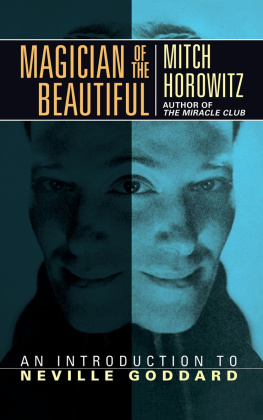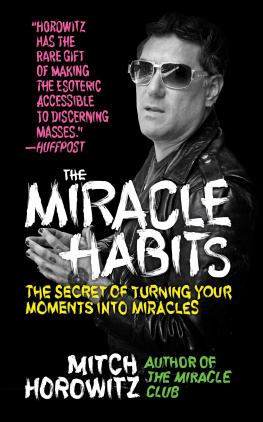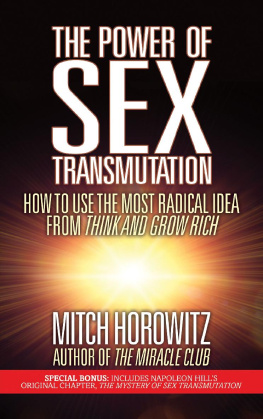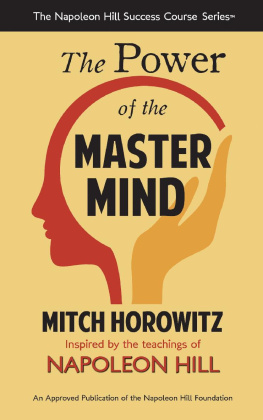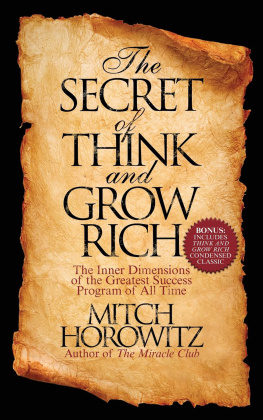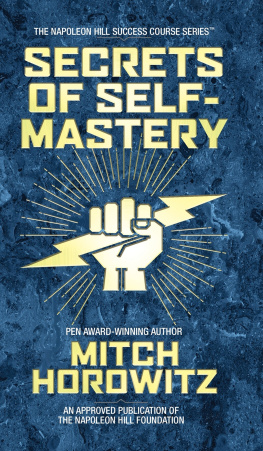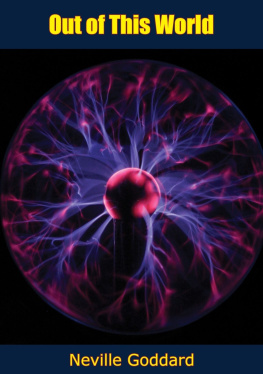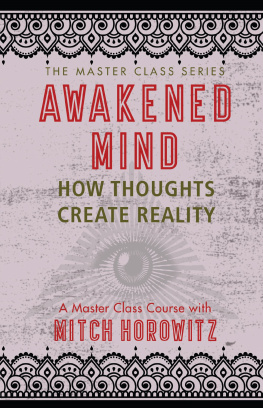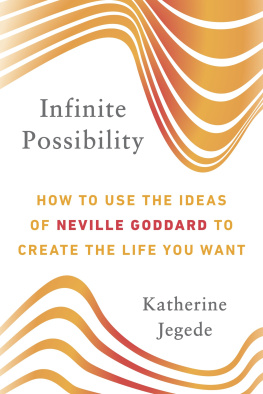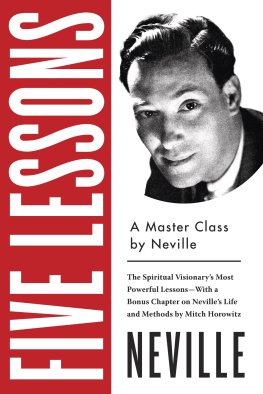
MAGICIAN
OF THE
BEAUTIFUL
MAGICIAN
OF THE
BEAUTIFUL
An Introduction to Neville Goddard
Mitch Horowitz
author of The Miracle Club


Published 2019 by Gildan Media LLC
aka G&D Media
www.GandDmedia.com
MAGICIAN OF THE BEAUTIFUL. Copyright 2019 by Mitch Horowitz.
All rights reserved.
No part of this book may be reproduced or transmitted in any form, by any means, (electronic, photocopying, recording, or otherwise) without the prior written permission of the author. No liability is assumed with respect to the use of the information contained within. Although every precaution has been taken, the author and publisher assume no liability for errors or omissions. Neither is any liability assumed for damages resulting from the use of the information contained herein.
Front cover design by David Rheinhardt of Pyrographx
Interior design by Meghan Day Healey of Story Horse, LLC
Library of Congress Cataloging-in-Publication Data is available upon request
ISBN: 978-1-7225-0283-6
eISBN: 978-1-7225-2387-9
10 9 8 7 6 5 4 3 2 1
Contents
Authors Note
T his short book is adapted from a presentation called Magician of the Beautiful, which I delivered in New York City in March 2019. In some cases, I paraphrase Nevilles statements from his lectures. All other quotations are verbatim. I wish to thank Christine Alfred and Bobby Picciotto for organizing and recording the original event.
LIVING FROM WITHIN
F or some of you, this may be an introduction to Neville. For me, its an opportunity to talk about the ideas of a figure who has been life-changing. For the past fifteen years or so, among all the various metaphysical systems that I study, work with, and write about, Neville has been my primary influence.
Nevertheless, I dont venerate spiritual figures or writers to the point where I think they cannot be questioned, improved upon, or understood to have been wrong about certain things. However much I love these figures, however much their lives and ideas have meant to me, I also find that we as human beings seem to possess an almost instinctive drive to organize our spiritual, political, or philosophical ideas into schools or religions, even as we claim to oppose to organized religions or fixed doctrines. Its human nature that we rush to slam shut the chapel doors or the seminary gates, so to speak, in order to ensure that our ideas, communities, or congregations remain orderly and airtight. We do this in the New Age culture as much as anyone else does.
I can think of nothing more stifling to the spiritual search than to settle upon a fixed doctrine and then decide whos in and whos out. I try to watch out for that tendency in my own work. I find that it occurs among even some of us who love the ideas of Neville or any other spiritual figures. People sometimes approach me online saying things like, You read Tarot cards. Neville didnt believe in reading Tarot cards. Or, Neville said not to venerate images. Yet you have a tattoo of Neville. Personally, I believe that Neville loved his students and encouraged the widest range of possibilities in their lives.
On a different tack, people sometimes object to questioning any factual issues that relate to Neville. I might question the identity or the existence of the man named Abdullah, whom Neville identified as his teacher, or suggest that Abdullah may have been a composite. Or I might suggest that Abdullah may have been a real, though dramatized, figure like Carlos Castanedas teacher, don Juan. On occasion people grow contentious over this issue. They cite chapter and verse to demonstrate that Abdullah had to be absolutely real, in this or that way. Although I have my own theories about Abdullahs identity and discuss some of them in my book One Simple Idea, as well as in this work, I do not believe that it is necessary for us to abide by everything that one of our spiritual heroes said in order to believe that that person brought extraordinary and powerful truth.
I think we should love our spiritual ancestors as adults love one another. Which is to say, we love maturely and lastingly when we acknowledge flaws or raise questions, we see shortcomings, and we understand that theyre part of the whole individual. When you love without the expectation or acceptance of flaw, you set yourself up for disappointment, because, one way or another, flaws will appear. Flaws appeared in Moses. If your love doesnt permit that, then your perception of a person runs into treacherous terrain. (The same holds true for a theory or idea). When it does, the experience can be shattering.
This is why sometimes people who are on the politically radical left go all the way over to the radical right, or vice versa. Ive witnessed this slide occur in people I know. When I ask them about it, they are often unable to take in the question. They simply dont hear it. They implicitly believe that truth appears only in the form of polarity. Some people spend their entire lives gravitating from polarity to polarity. If they are disappointed in one, they decide that truth can be found only at the other end. In such cases, I think people are searching for saviors, in the form of a ideology if not a person.
I dont see Neville Goddard as a savior. But I do see him as an extraordinary figure whose simple, radical ideas have opened doors in my life that I never thought would appear.
Let me start with a basic explanation of who Neville was. The man called Neville, who wrote and spoke under his first name (his surname was Goddard), was a British-Barbadian writer, thinker, and mystic born in the West Indies in 1905. He had one essential and radical teaching, which is: your imagination is God. Therefore everything you see, feel, and experience is ultimately self-created and self-generated.
Neville meant that in the most literal sense. He didnt mean that your imagination is metaphorically God; he meant that you, the individual, are the Creator clothed in flesh, and that everything within your world, everything within your experience, is the outpicturing of your own emotionalized thoughts and mental images. Which is to say that even this experience that you are having right now, reading or listening to these words, is self-created. I, as Mitch, am not here; I do not exist in the sense that I am a figment of your own intellect. These ideas are your ideas. They are now being out-pictured and experienced by you. They only seem to be coming from me, perhaps because this may be a useful time for you to encounter them. Im simply the mental concretization of what youre already thinking about.
Neville taught that whenever in Scripture you encounter a reference to Christ or God, youre encountering a symbolic reference to and representation of your own imagination. He viewed Scripture as an illumined book written by Eastern masters in a symbolic language, which resists ordinary literal interpretation. Across thousands of lectures and writings, Neville argued for this idea with tremendous persuasiveness.
Neville further insisted that nothing that occurs in Scripture is actual history. Theres no historical truth whatsoever in Scripture: everything that appears in both the Old and New Testamentsalthough there are chapters of greater and lesser worth in terms of the human experience and psychological and mystical insightis a symbolic telling of the unfoldment of your own psychic development. The earliest seeds of human self-development appear in the Old Testament and reach fruition in the New Testament, where the figure of Christ is a representation of you, the individual, entering awareness of the mystical and creative capacities of your mind, being crucified on the cross of awareness, and finally being resurrected into realization of yourself as the Creator.
Next page
